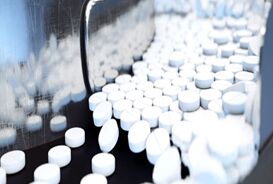这种常用药会让胃癌发生率加倍!
|
A class of drugs commonly used to treat acid reflux and heartburn has been linked to a greater-than-doubled risk of developing stomach cancer, a study has found. Proton pump inhibitors (PPIs) are used to suppress acid production in the stomach and are among the most widely sold drugs in the world, but a 2017 study revealed that long-term use of the medicine can increase stomach cancer risks by almost 250 percent. The risks are associated with a bacterium called Helicobacter pylori, carried by more than half of the world's population – most often harmlessly, but in a small percentage of people, the bug has been tied to the development of stomach cancer.
Previous research found that people with an ongoing Helicobacter pylori infection taking a PPI stood a greater chance of developing a precursor to stomach cancer, called atrophic gastritis. While the mechanism for this was unclear, it's long been considered that eliminating the infection prior to taking PPIs – which have been linked to various adverse effects – might reduce the prospects of getting cancer. But the recent research shows that might not be the case. "Proton pump inhibitors (PPIs) are an important treatment of Helicobacter pylori infection and have good safety records for short-term use," said researcher Ian Wong from University College London. "However, unnecessary long-term use should be avoided." Greater frequency of PPI usage and longer-term treatment with the medication appeared to up the likelihood of developing cancer further. Daily PPI use was associated with a 4.55 times greater risk of cancer than baseline, and became as high as an 8-fold greater risk if the drugs were taken for more than three years. The researchers acknowledged that this is only an observational study, so we can't assume from the data that PPIs are the cause here – but nonetheless, it's an alarming finding that shows there's more going on than scientists previously realised. |









